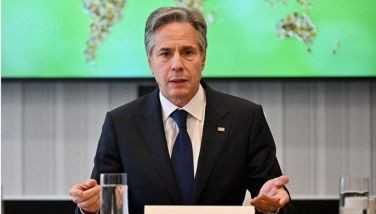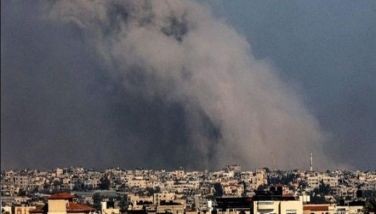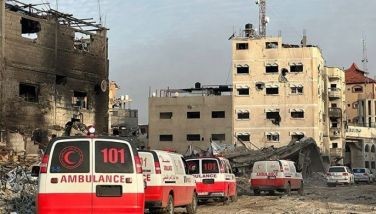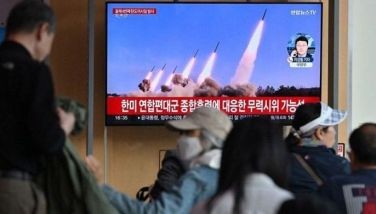Iran readies for big oil production hike
VIENNA - Iran indirectly challenged OPEC kingpin Saudi Arabia on yesterday, announcing it plans to pump as much oil as it can once sanctions on its crude exports are lifted, even if its extra output drives prices into the basement.
The comments by Iranian oil minister Bijan Namdar Zanganeh reflected Tehran's determination to regain its global role as an oil power if it is freed of the sanctions under any nuclear deal with six world powers meant to ensure that its atomic activities cannot be used to make weapons.
It also raised the prospect of a production war inside the cartel, which is keen to project an image of unity among its 12 members. If Iran does ramp up its output — and Iraq and Libya make good on promises to do so as well — other OPEC members would have to reduce theirs to keep prices from dropping too much and hurting them all.
Iranian rival Saudi Arabia would be particularly under pressure. It is now producing about a third of OPEC's daily output of about 30 million barrels
Under such a scenario, "it would be difficult for the Saudis to maintain production levels without risking lower prices," said analyst Jason Schenker of Prestige Economics.
That potential problem was not on the top of the agenda at yesterday's meeting, where the oil ministers agreed to extend present output targets of 30 million barrels a day.
But the Organization of the Petroleum Exporting Countries may have to focus on the prospect of overproduction as early as their next meeting on June 11.
Iran's agreement to limit its nuclear program is still only a preliminary one. Sanctions on its oil exports are likely to stay in place until a final deal is reached, which— if it happens — is unlikely before mid-2014.
If and when the sanctions are lifted, Iran says it wants to ramp up production to pre-sanctions levels of 4 million barrels a day.
Iraq also wants to reach that target within a year, while Libya hopes to increase output to 2 million barrels a day once unrest ebbs. In all, that would add close to 4 million barrels to total daily production, meaning some members would likely have to cut back.
OPEC has had little success in the past at asking member countries to respect individual targets. But OPEC Secretary-General Abdullah Al-Badry sought to downplay looming problems from any surplus production, saying his organization would deal with it if and when that happened.
"We are watching this situation very carefully," he told reporters.
Zanganeh said ahead of yesterday's meeting that his country was determined to regain its share "under all circumstances."
"We will produce 4 million even if the price drops to $20," he told reporters. Benchmark Brent crude on international markets now sells for nearly six times as much, and a drop to anywhere near $20 would spark a crisis among oil exporters by leaving production costs far outstripping sales revenue.
Although the Iranian comments posed a potential challenge for Saudi Arabia, Saudi oil minister Ali Naimi sought to ease concerns, telling reporters he did not see a price war on the horizon.
"I hope Iran comes back (and) produces all it can," he said. But he gave no sign that his country was ready to reduce output.
Zanganeh on Tuesday suggested oil sanctions may be incrementally relaxed even earlier than mid-2014. In a nod to the Saudis, he said he hoped OPEC members understand that "when a member country comes back ... they should open the doors for him and not fight with him."
Strong US shale oil production could add to internal OPEC pressures beyond political tensions caused by Sunni Saudi Arabia vying with Shiite-led Iran and Iraq.
As in the past meetings, Iran, Iraq, and Saudi Arabia all put forward candidates for the post of OPEC secretary general, who acts as the voice of the organization between meetings.
But with their rivalries strong and potentially harmful to OPEC unity, the meeting skirted the issue and extended Libya's Al-Badry for another year in the post — a move described as wise by analyst John Hall of Alfa Energy.
With an Iranian in that position, Tehran "will do its utmost to use OPEC as a political weapon, while Saudi (Arabia) will continue to run OPEC as it does anyway but in the foreground as opposed to the background," he said. "
Iraq in turn would push to have its output target upped to 4 million barrels a day, Hall added.
- Latest
- Trending
































